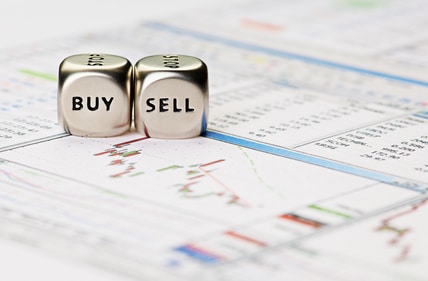It seems incredible, but sometimes the simplest things can be the most difficult to accept and understand. While working in this exciting world of trading, I’ve met many people who have no idea how to manage an account, whether demo or even worse, a real account. I’m writing this article to shed light on how to work towards managing your risk.
Forex trading should be simple. Undoubtedly, those who make it difficult are usually the ones who have never traded the markets or been properly taught how to trade. Many first start with a demo account. It’s the best choice as a beginner and is offered by a broker. The first thing to do with a demo account is to “play” with it. The term “play” refers to meaningless trades and worse when they compare it to a casino, gambling in every trade and choosing a side. The beginner also risks amounts that have nothing to do with the reality of a real account.
When many begin to trade the Forex Market, the first thing they do is open a “practice” demo account for $100,000 or $500,000. There is nothing wrong with practice! By having such a large initial amount, the rookie trader will make “large” trades and there begins room for error. Win or lose, mismanagement will happen sooner or later. Mismanagement can be in the form of abusing the number of lots traded or trading many currency pairs simultaneously, both mistakes of the novice trader resulting in risking more than necessary. Some will turn these errors into habits and will repeat the same habits when trading a live account. Many of a trader’s large losses come from repeated bad habits when trading “practiced” accounts. Human beings act by habit, which in trading can be fatal if not overcome.
One example is if a trader opens a live trading account with $10,000 and risks about 10% per trade. Let’s suppose they lose 10 consecutive trades, which can happen. After the 10th trade, their account is now 35% lower from their original investment. A trader should learn to survive first and keep a constant rhythm. If they’re not winning, they’re hopefully not losing large amounts before learning to become a seasoned profitable trader.
The first thing to learn when trading the forex market is to have respect for the market. Do not let it drain you just like most people who try. A trader should not risk more than 2% of their account. This is a trading survival skill. Even if the trader loses 10 consecutives trades using 2% of their account, there is still hope to make it all back in a timely manner. A slump happens to the best trader in the world; it could happen to me and could happen to you as well. Losing trades is part of this business and we must learn to keep moving forward.
Another example, if a trader risks 2% of their account in each trade and lose up to 30 trades consecutively, their account will only reflect about a 55% drawdown. This is an act of survival trading skills and smart money management. A trader who loses up to 30 consecutive trades should look into their strategy and figure out what is wrong before continuing to trade. Don’t be afraid to continue to trade and correct your mistakes. That’s what trading and management is all about.
Many get involved in the Forex Market because it can quickly make returns on your investment and they think that you don’t need to dedicate time in a formal school or institution. Is it easy to make up a 35% loss? Absolutely not. However, this situation is common amongst beginner traders and unfortunately a regular outcome of not being educated on how to trade before getting starting. I’m sure this has happened to most traders at some point in their lives. In my experience as a Forex Analyst and trader, I have met risk- taking traders who managed to destroy their accounts in record time. Do not be part of the vast majority, especially with those who want to self-teach themselves on trading and aren’t educated on capital management.


















